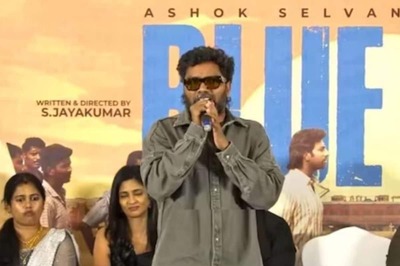
views
Chief Justice of India (CJI) N V Ramana on Thursday strongly proposed reservation for girls in legal education to enrich the pool of talent. Saying that data proves that such provision has yielded encouraging results in appointing women judicial officers at the district level, the CJI said Telangana with 52 per cent, Assam with 46 per cent, Andhra Pradesh with 45 per cent, Odisha with 42 per cent and Rajasthan with 40 per cent women among judicial officers have done well with reservation for women.
“I strongly feel that the policy of providing reservation to women needs to be replicated at all levels and in all the states,” Justice Ramana said in a speech delivered in a programme hosted at the Supreme Court to commemorate the first ever International Day of Women Judges’.
He stated that at an event organised by women advocates in Delhi, he had borrowed from Karl Marx and said, Women of the world, unite; You have nothing to lose but your chains. That call of mine was sought to be projected as instigating a revolution. If giving women their due share is a revolution, I would be very happy to be branded as a revolutionary. I whole heartedly welcome such a revolution, he said. The CJI said that at present there are four women judges in the apex court, which is the highest ever in its history, and in the near future, India will be witnessing the first ever female CJI.
“But, I think, we are still far away from ensuring at least 50 per cent representation of women in our judiciary. The legal profession still remains male dominated, with severe under-representation of women,” he said. Besides the CJI, the four sitting women judges of the apex court — Justices Indira Banerjee, Hima Kohli, B V Nagarathna and Bela M Trivedi — also addressed the event.
Justice Ramana said the recognition of March 10 as International Day of Women Judges’ is an important step to create awareness and mobilise political will. “I am a strong proponent of affirmative action. To enrich the pool of talent, I strongly propose reservation for girls in legal education. The data proves such a provision has yielded encouraging results in appointing women judicial officers at the district level,” he said. The CJI said it is imperative for the justice delivery system to be in the forefront of progressive change.
“After I assumed the office of Chief Justice of India, we have so far filled nine vacancies in the Supreme Court out of which three vacancies were filled with women,” he said, while thanking the other members of the Supreme Court Collegium Justices U U Lalit, A M Khanwilkar, D Y Chandrachud and L N Rao. He said for the high court, the Collegium has recommended 192 candidates so far, out of which, 37, that is 19 per cent, were women.
“This is certainly an improvement over the percentage of incumbent women judges in high courts which stands at 11.8 per cent. Unfortunately, so far only 17 of the 37 women recommended to high courts were appointed. Others are still pending with the government,” he added. The CJI said he is wholly conscious of the systemic prejudices women have been facing, particularly in the Indian society and one of the main reasons for the continuing battle of women, in spite of acquiring sufficient skills and knowledge, is the lack of adequate representation at the helm of affairs.
Justice Ramana said there are numerous factors behind the under-representation of women in the judiciary and the primary reason is deeply ingrained patriarchy in our society. He said women often have to face hostile atmosphere within the courtrooms and harassment, lack of respect from members of the bar and bench and the silencing of their opinions are some of the other traumatic experiences often recounted by many women lawyers.
The CJI said that, resultantly, out of nearly 17 lakh advocates registered in India, only 15 per cent are women. “The absence of inclusivity in the thought process sustains this anomaly,” he said, adding that a good number of women law graduates are compelled to give up their professional ambitions due to societal expectations.
“We need to create enabling environment for women to pursue their career in law. Balancing personal and professional life is a huge challenge for women. Though they excel as students, the domestic issues prevent them from pursuing their passion. This is where the family, fellow members of the bar and the bench need to provide necessary encouragement,” he said. The CJI said a woman being a natural multi-tasker is bound to succeed in any given profession. He said women should be given preference while making appointments as panel advocates which will pave their path to the bench.
“The presence of women on the bench and in the bar has more than a symbolic importance. They bring to the law a different perspective, one that is built upon their experience. They also have a more nuanced understanding of the differing impacts that certain laws may have on men and women,” he said. The CJI said Cornelia Sorabji, who was the first woman to study law at Oxford, in 1892, returned to India, and worked extensively with women in purdah’. Often women feel deterred in reporting certain offences due to lack of representation in criminal justice system and a strategic investment in diverse judiciary will bring in exemplary changes in accessing justice as well, he said.
“One of the marks of a progressive nation is the condition of female population,” he said, adding the issues confronting women are no longer private affairs of women.
Read all the Latest Education News and Breaking News here




















Comments
0 comment